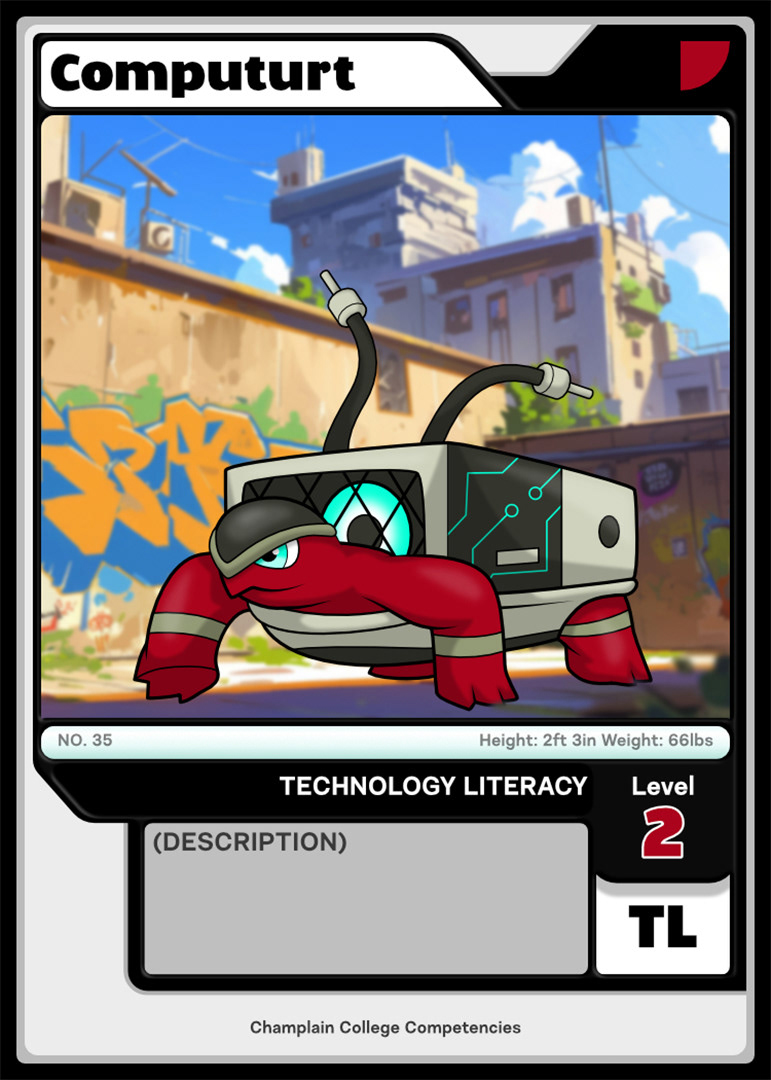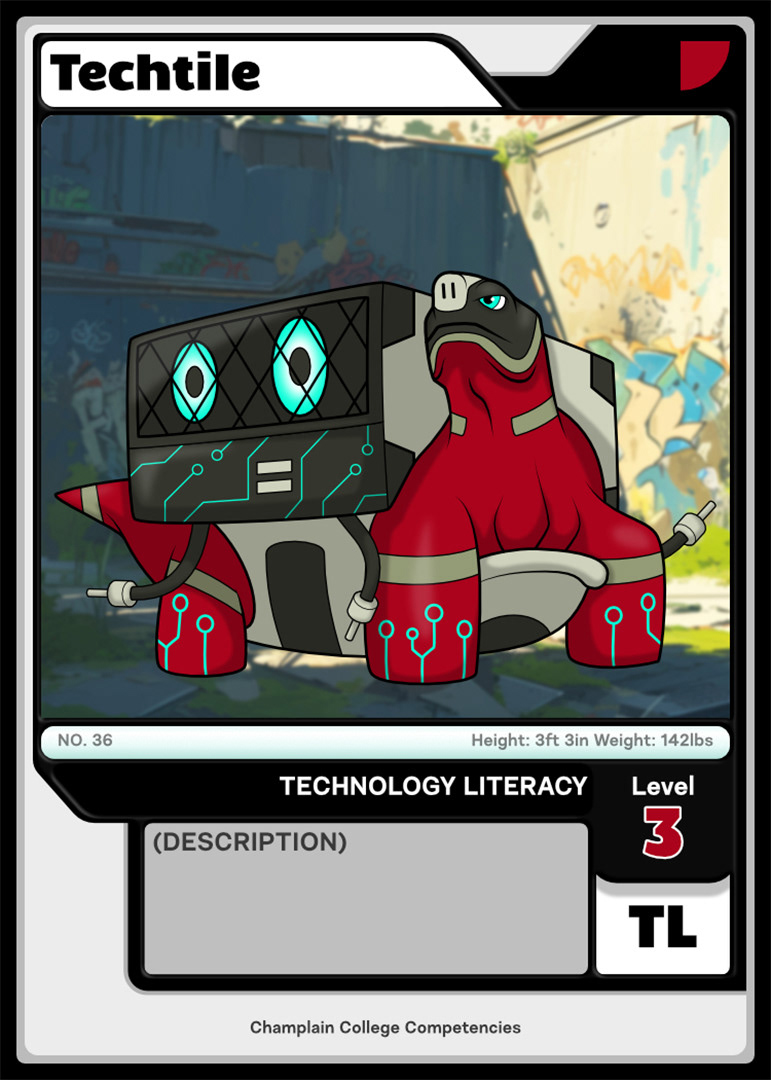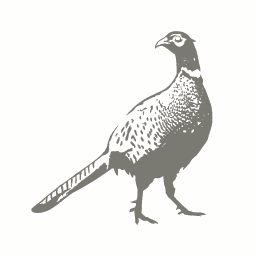The Champlain College Competencies Initiative is a project to raise awareness to skills students learn during their time at Champlain College. My specific role on the project was student engagement. I created Pokemon-inspired cards with characters relating to each competency, and an evolution factor that reflects the level of proficiency within each competency.
Analysis
The ability to separate and organize complex topics or issues into their component parts, and through a systematic process, to identify and differentiate those components to gain an understanding of the topic or issue.


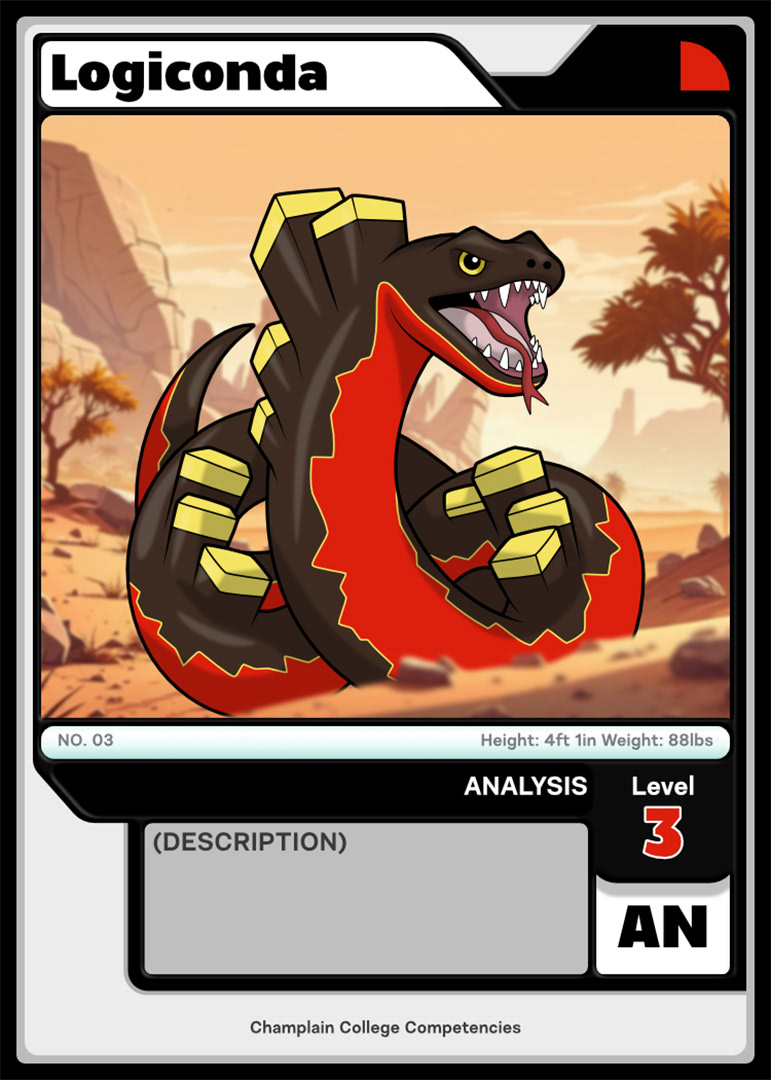
Collaboration
The ability to work inclusively and productively with a group toward a collective outcome; the ability to create an environment where each perspective is considered for the cooperative purpose of making progress toward common goals.
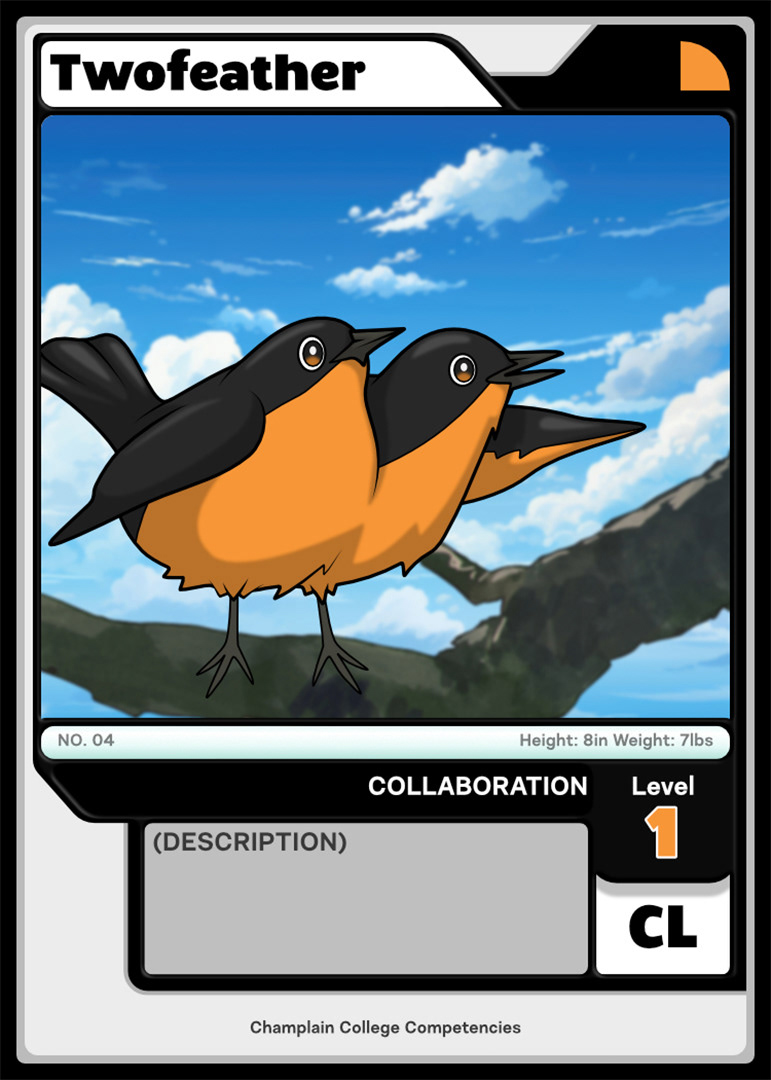
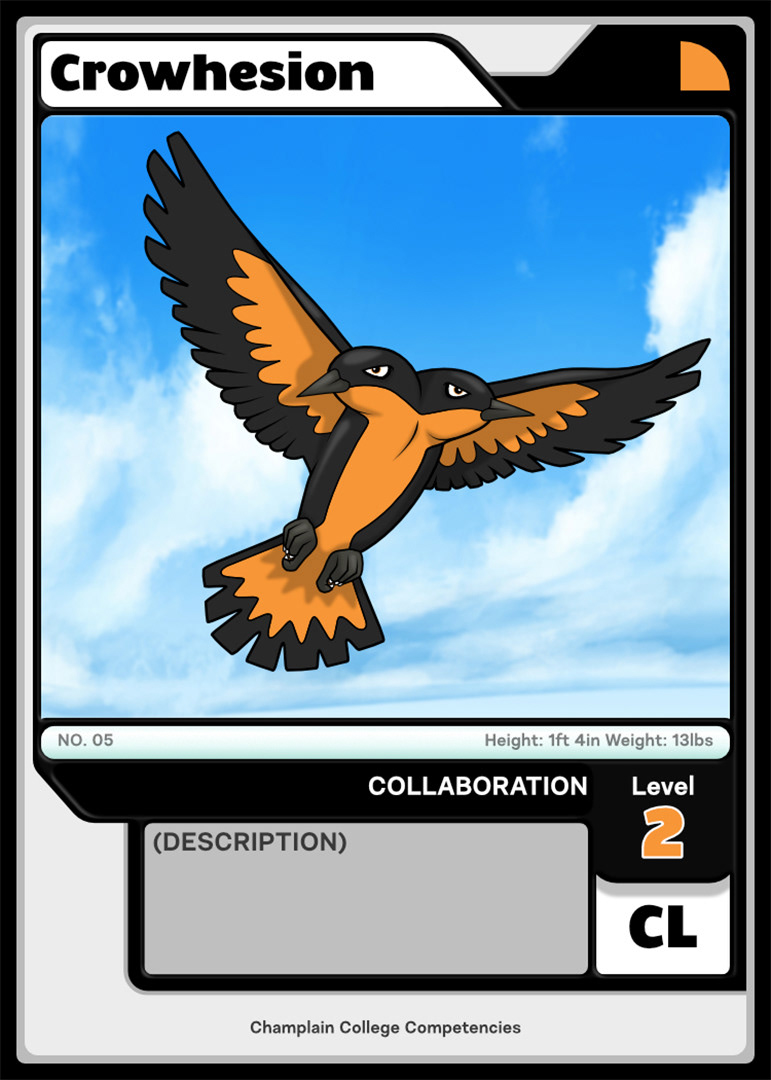
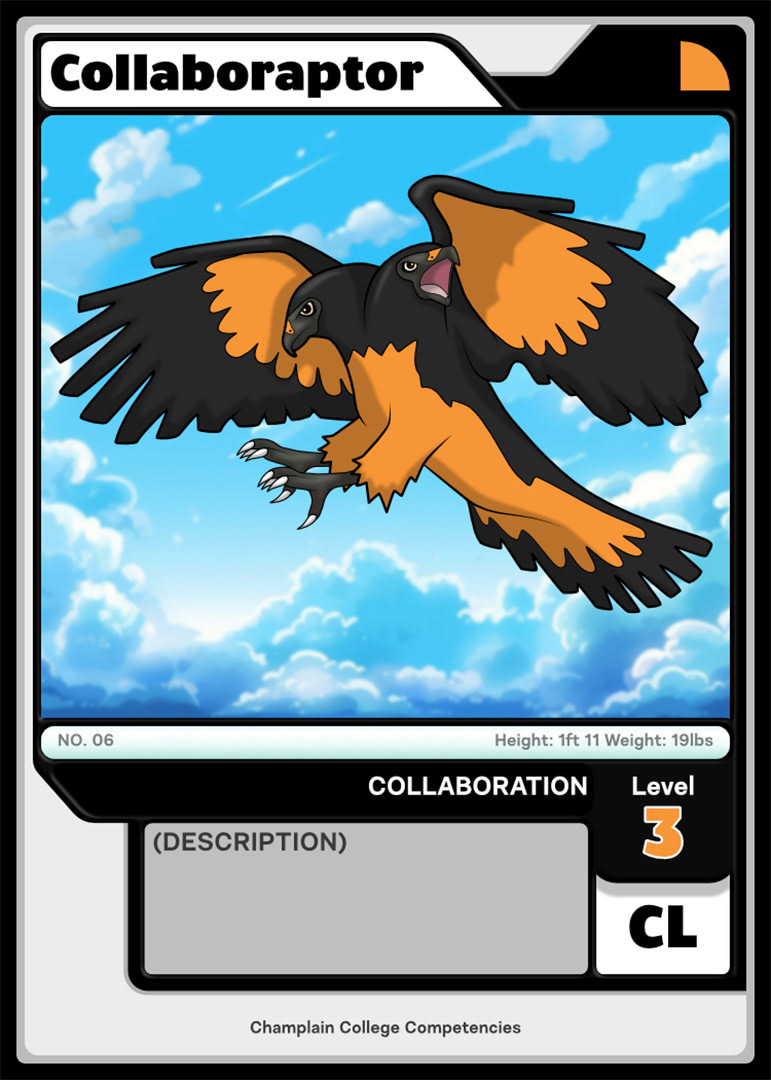
Communication
The ability to use reading, thinking, writing, and speaking to convey ideas, information, and intentions effectively and in a manner that is appropriate to the topic, situation, and audience; the ability to interpret accurately and critically the messages produced by others, and to respond appropriately.
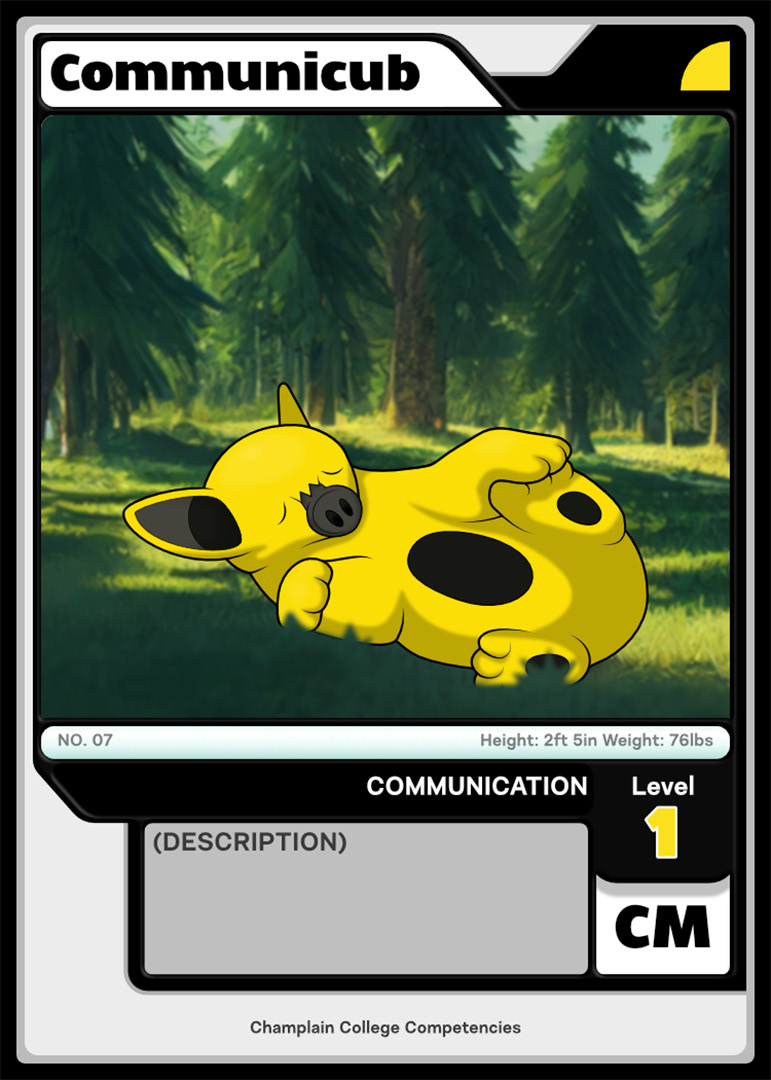
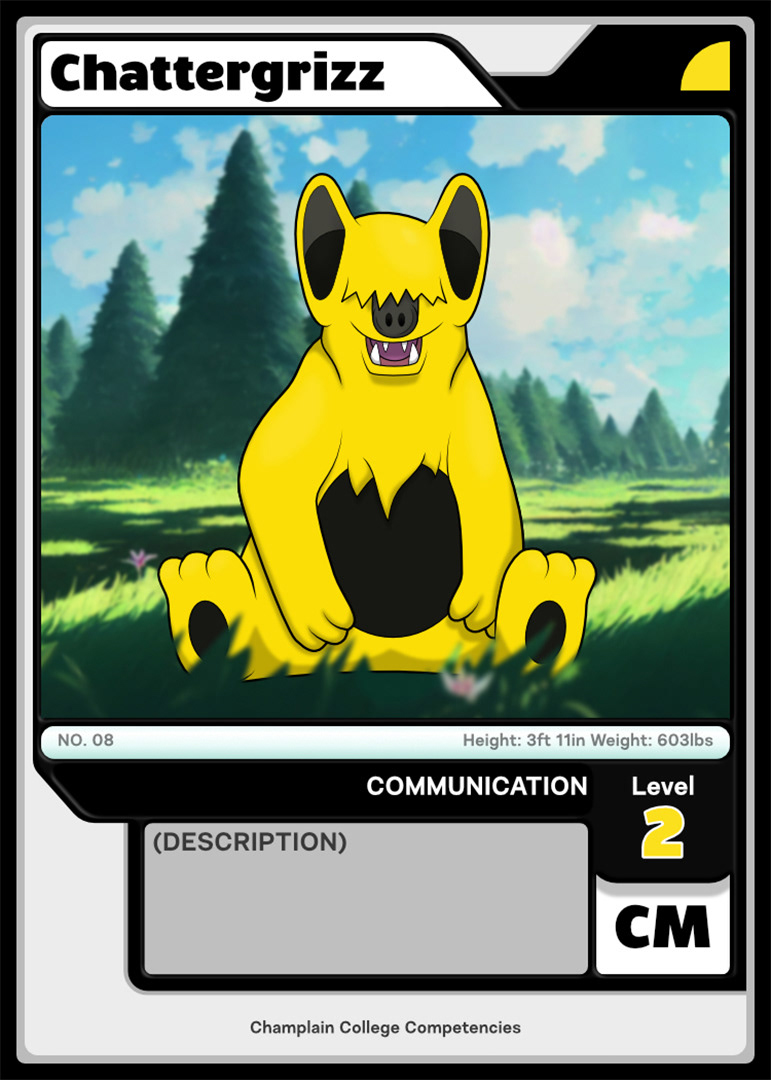

Creativity
The ability to think, work, and respond in ways characterized by a high degree of originality, divergent thinking, and risk taking; the ability to combine or synthesize existing ideas, images, or expertise (or aspects of these) in ways that are original or that lead to unexpected results.



Diversity, Equity & Inclusion
The ability to evaluate intersections, influences, and social contexts from a position of shared humanity and openness toward difference, in order to integrate one’s values and belief systems into action.


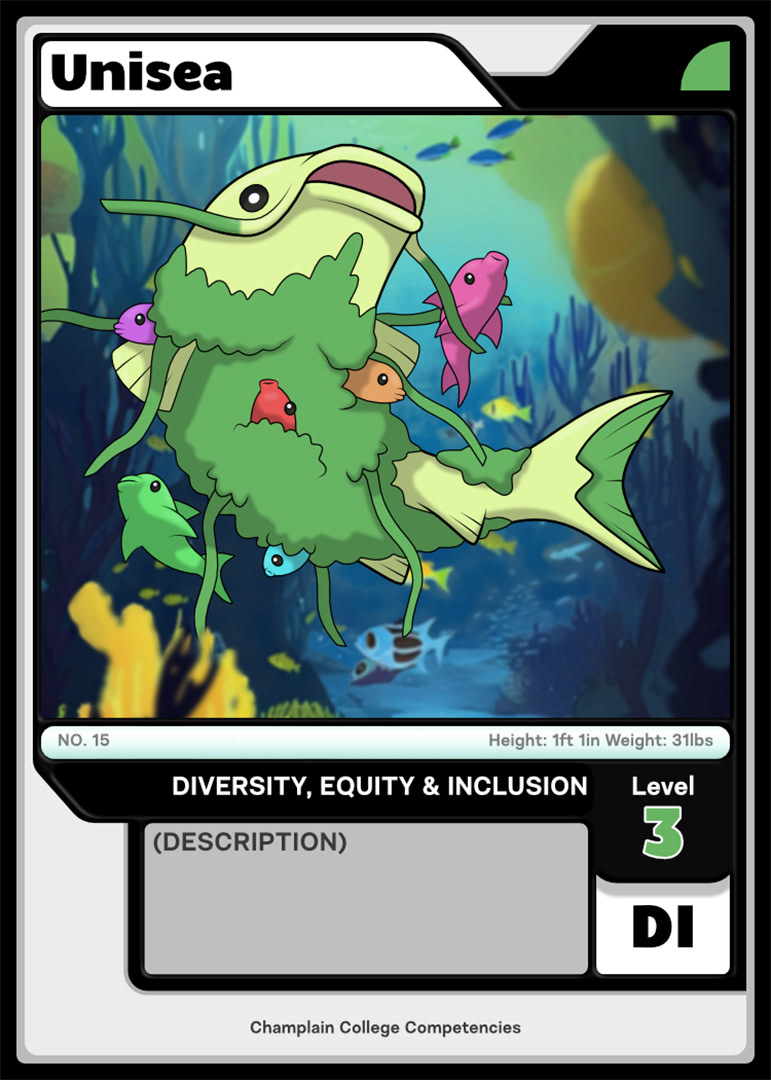
Global & Cultural Understanding
The ability to critically analyze and engage with complex, interdependent global systems, and legacies—natural, physical, social, cultural, economic, and political—and their implications for our lives and the Earth.
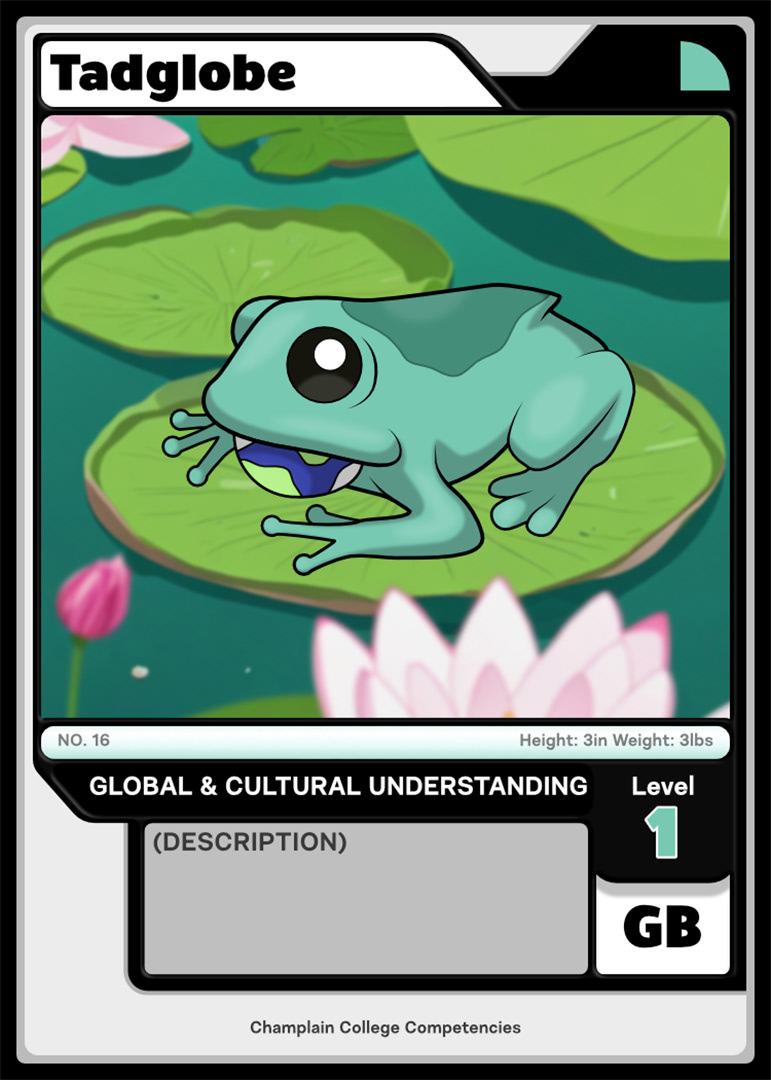


Information Literacy
The ability to find, store, evaluate, and synthesize information to answer questions, develop new ones, and create new content and knowledge in an ethical and socially responsible manner.

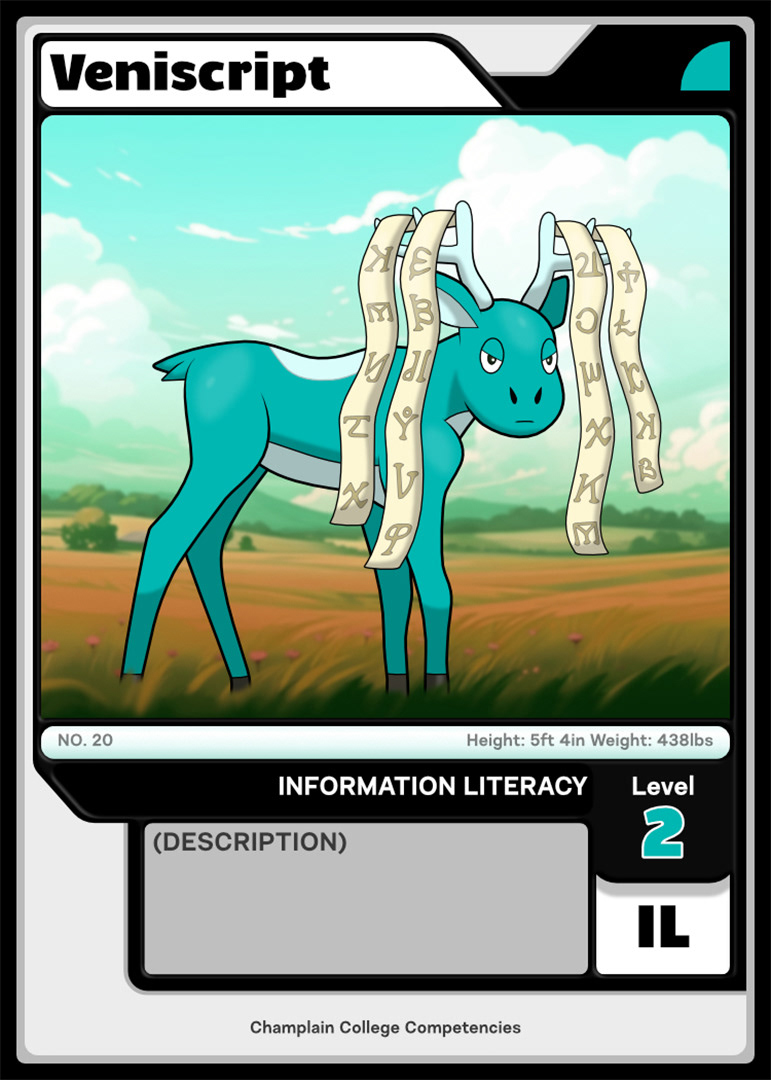
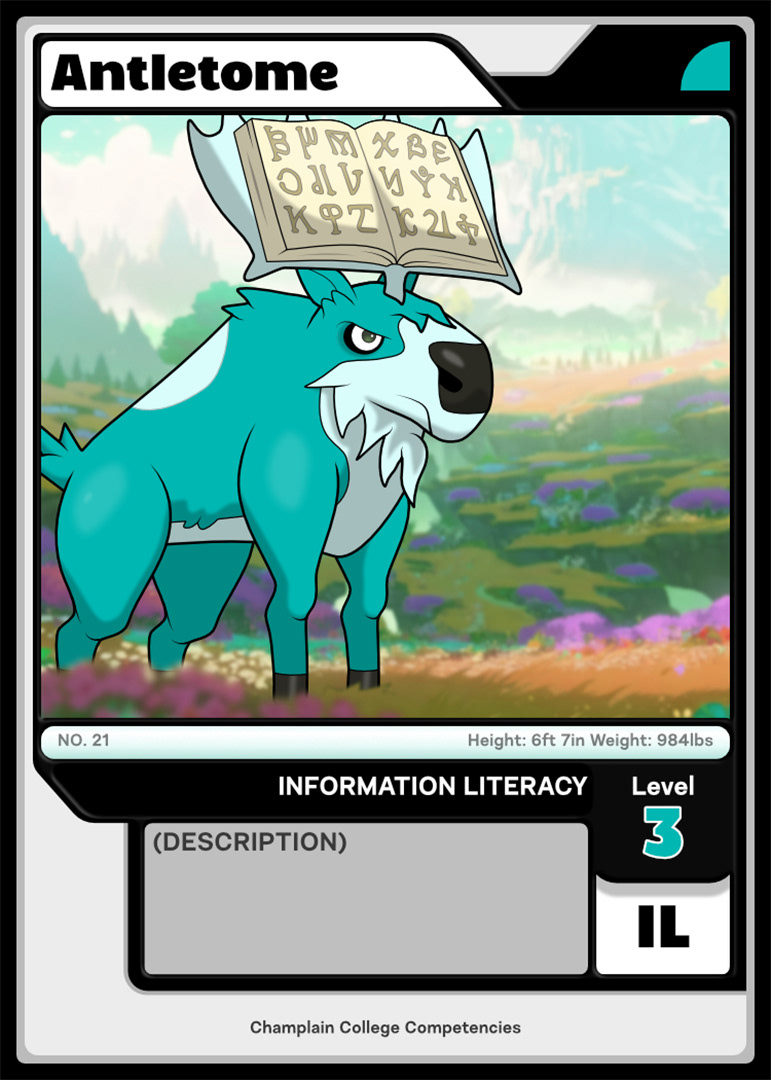
Inquiry
The ability to identify, formulate, and communicate questions that guide investigation and reflection toward discovery; the ability to critically and thoroughly examine one's own assumptions and the assumptions of others.

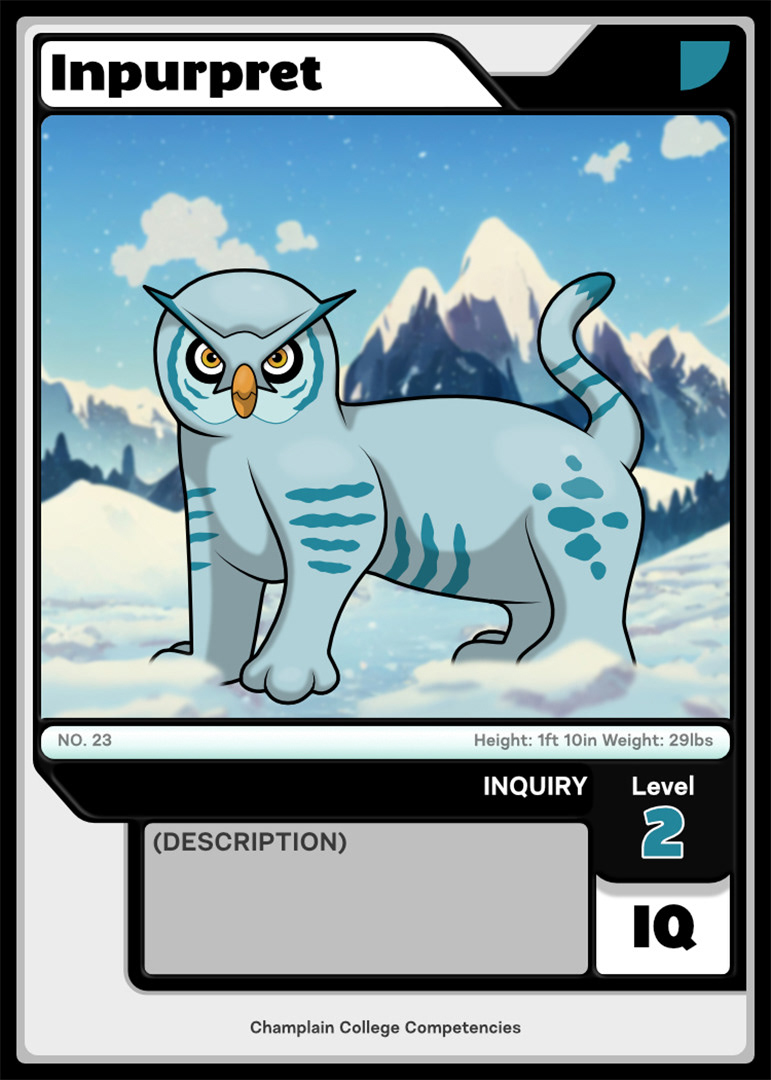

Integration
The ability to move from making simple connections among ideas, disciplines, and experiences to synthesizing and transferring learning and data to new, complex situations.

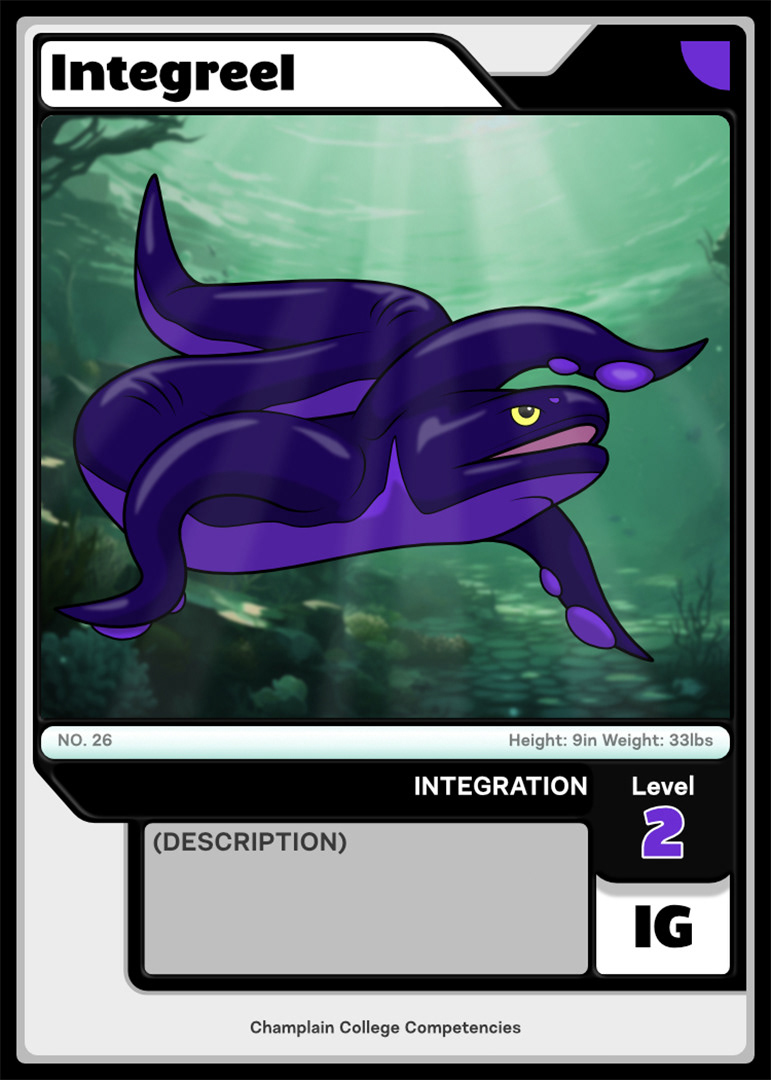
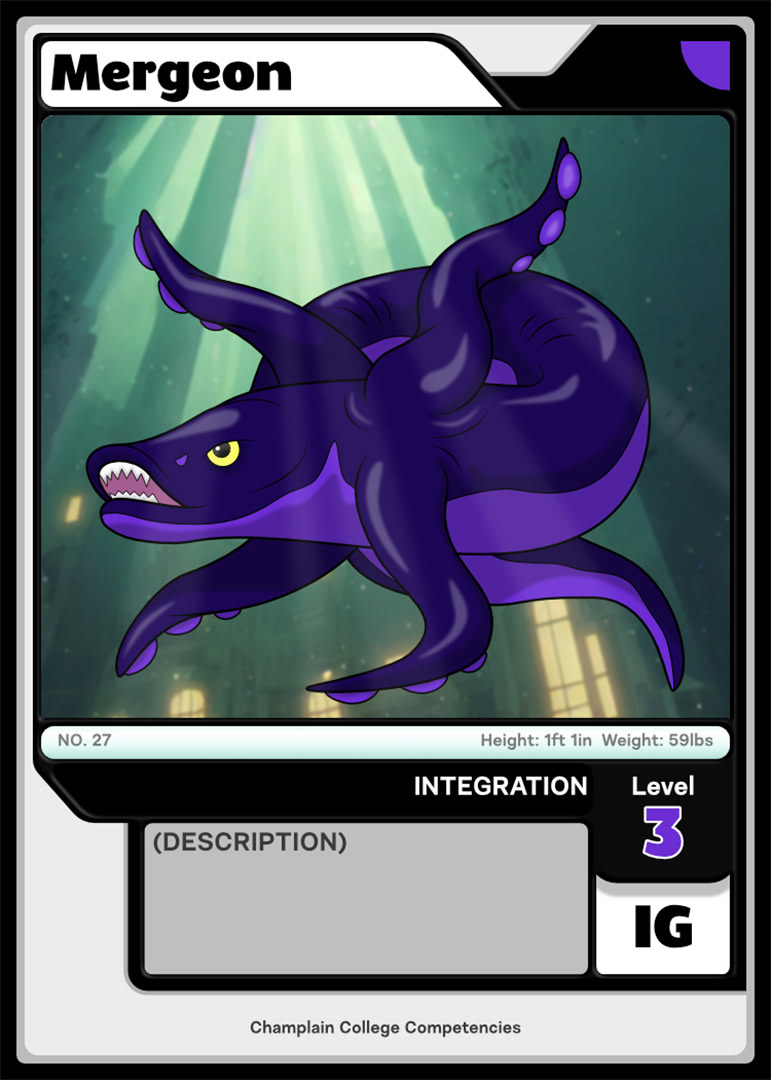
Quantitative Literacy
The ability to interpret quantitative information, apply appropriate mathematical methods to solve quantitative problems, and communicate solutions in the appropriate context.

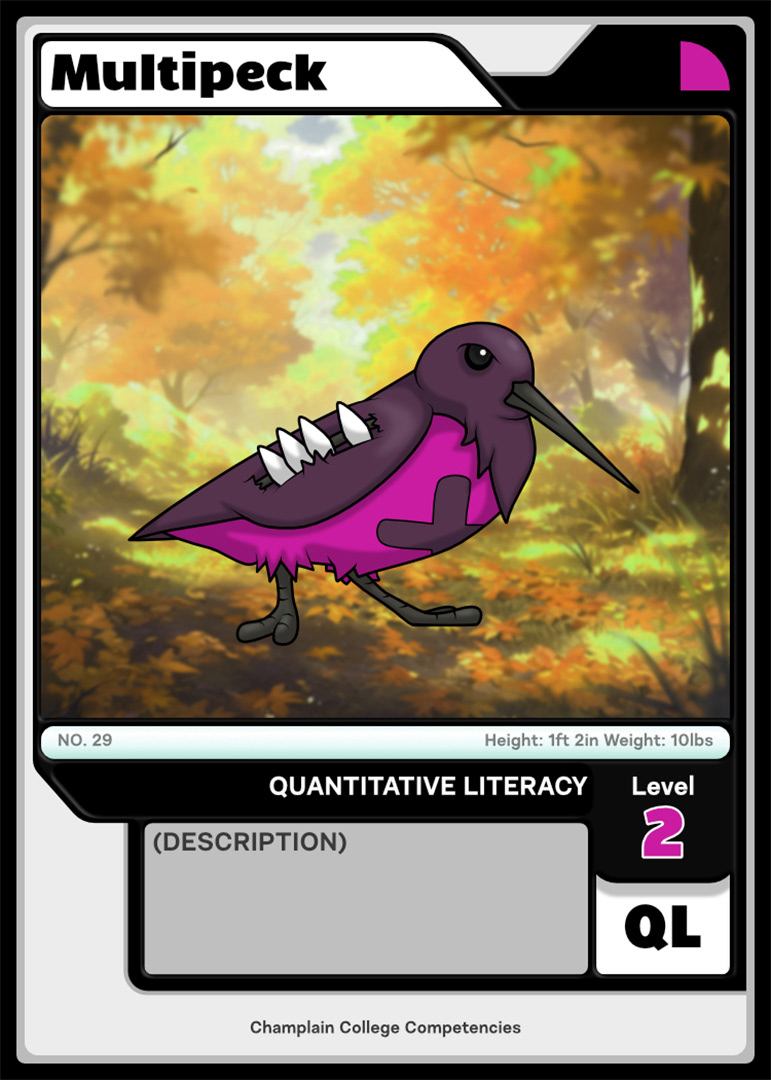

Scientific Literacy
The ability to apply scientific methods to understand the natural world, to identify scientific aspects of daily life, and to evaluate the quality of scientific information on the basis of its source and the methods used for its generation.

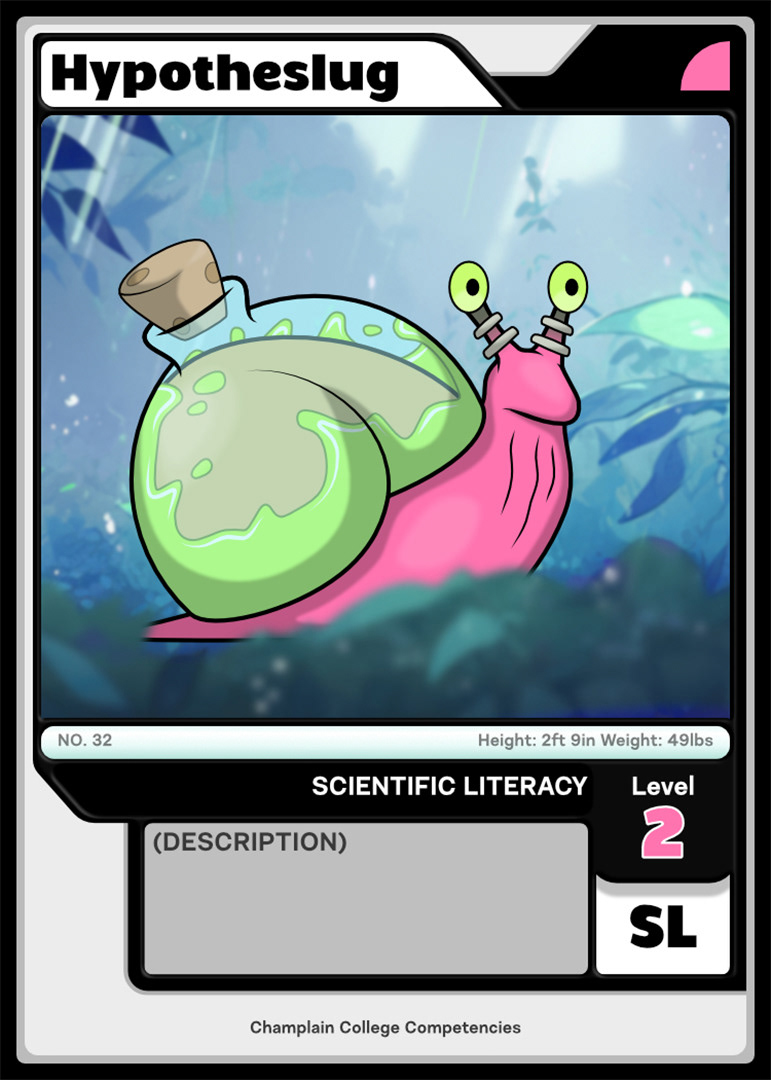

Technology Literacy
The ability to use, manage, assess, and understand technology.

